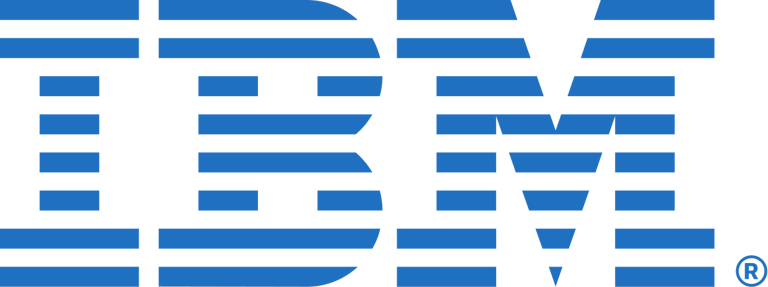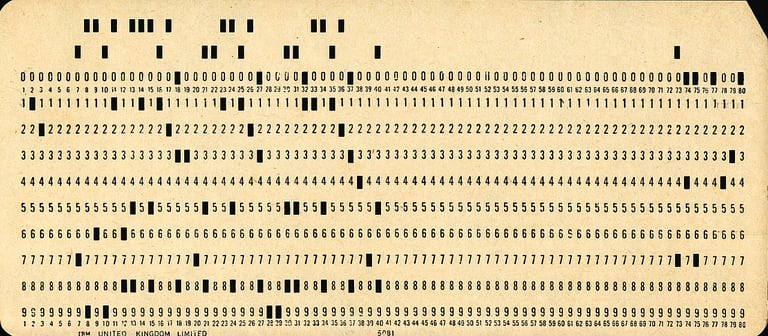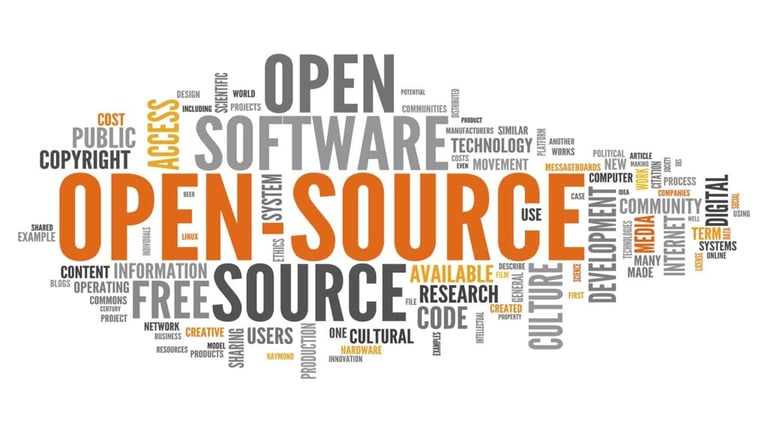Free and Open-Source Software
6 min read


Big Blue
When I started using computers in the late 70s and early 80s, IBM dominated. Nobody got fired for buying IBM. Their products were so expensive that they could afford the sales force to persuade corporate buyers not to look too closely at the alternatives. I consumed a few of their free lunches.
But it was not just brand and marketing, IBM employees would only commit to a project when they reckoned they could over-deliver. They were a sure bet.
IBM controlled the standards and the mindset. When they published a technology roadmap, we believed it was what the future of computing was going to look like.
The minicomputer revolution did little to dent IBM’s dominance. The early days of personal computing, with Z80 and 6502 chips, didn’t look like it was going to either. But IBM fumbled the transition. I spent a week training at IBM Warwick, when the PS/2 range was announced. Those IBMers truly believed that this would take back the control already slipping through their fingers.
And now almost nobody uses EBCDIC (a character set designed to ensure the structural integrity of punched cards). Eric S. Raymond called EBCDIC a manifestation of purest evil.
Microsoft
The winner of that fight went on to dominate the technical landscape for decades. IBM’s last great hope (OS/2, companion to the PS/2) has long faded into obscurity. For a while Windows was riddled with security vulnerabilities, as Bill Gates had his pedal to the floor to deliver functionality faster than his opponents. Briefly, there was the threat of an anti-trust break up, but that threat receded as they learnt how to win without obliterating the rest.
Cloud
Today, the PC operating system is less relevant. A significant portion of our computing technology is in our pockets, on our wrists or in vast data centres. But the question of control is still very much to the point.
With huge profits at stake, tech giants have every incentive to own the landscape. Vendor lock-in persists, despite the struggle to promote interoperability standards. It is more subtle these days.




Justice
Disparity of wealth and incomes is a growing concern for me. One does not need to be a rabid lefty, to realise that lassez-faire has gone too far. Seeing the tech bros (Bezos, Zuckerberg and Musk) sitting behind Donald Trump at his inauguration should have been enough. “The dangerous concentration of power in the hands of a very few ultra-wealthy people” (Joe Biden).
So this is about more than which operating system I use. I resent having features added to my PC that I have no use for. I resent being the product, because I didn’t pay for the stuff I do use.
Free as in liberty, not free as in price.
Finally, I am happy to be using technology based on Ubuntu. An African word, that expresses: compassion, reciprocity, dignity, harmony and humanity in the interests of building and maintaining a community with justice and mutual caring. A much better word than domination, control or profit.
Public Domain
From the earliest days of computing (1960s onwards), software developers have put their creations into the public domain. In 1986, Richard Stallman promoted the idea of free software. Freedom to use software however you wanted to. Freedom to access its source code, redistribute it, modify it and share the modified versions. So the whole community benefited from incremental improvements. The changes that persisted were chosen by natural selection, rather than the commercial interests of an over powerful vendor. At least that is the theory.
Sovereignity
Digital sovereignty, cyber sovereignty, technological sovereignty and data sovereignty are now issues of national concern. Countries wish to have control over their digital destiny – the data, hardware and software they rely on.
In June 2025, Denmark announced a move away from Microsoft Office to LibreOffice. Unsurprising given Donald Trump’s stated wish to takeover Greenland. Presumably this is from the whole suite of online services (not just word processor, spreadsheet, etc).
For the European Union, digital sovereignty is a big deal and getting bigger. A combination of security, economic, political, and societal imperatives is driving these moves. EU leaders are seeking to reduce Europe's dependence on foreign technology providers, primarily those from the United States.
They are concerned about who controls European data, who sets the rules, and who can potentially cut off access to essential services in times of geopolitical tension. We have already seen prominent individuals locked out of their email accounts, despite promises from Microsoft that it would resist political pressure. With a threat of disruption (however theoretical), such promises seem empty.


Switching to Linux
Which brings me to the point of this article. For years I wanted abandon Windows and switch to Linux. It was quite apparent that Microsoft was leveraging the dominance of Windows to push its other products (Windows 11 does more of this than Windows 10). Worse than that, it is almost impossible to stem the flow of my personal data being leaked back to HQ. Big Brother is watching you. In normal times this may not be a priority, but with the rise of authoritarian states it becomes very much the issue.
I rebuild my PCs every year. In part this is to make sure I keep software and data separate. So I will never have a problem with a PC that I cannot fix. Follow the setup instructions, restore the data and I have a fresh working system within an hour. But, my setup instructions for Windows 11 include using BloatyNosy. It takes a lot of effort to remove the stuff I don’t want.
To get ready for a switch to Linux, I chose applications that are operating system agnostic. Stuff like Firefox, Thunderbird, LibreOffice, Inkscape and many others are designed to work as well on macOS and Linux as on Windows. The biggest barrier to switching was the availability of my favourite games. Even with Steam, many games were “Windows only”. But then I discovered the Proton compatibility layer (a simple option selected under Steam Settings). Bingo!
I have been using Ubuntu Cinnamon edition for almost a year. My PC is still dual boot, so I can switch back to Windows (just in case), but I rarely need to. I guess it helps that I’ve used Unix and Unix like systems professionally. Perhaps someone else, expecting a C: drive, might struggle to begin with, but it is just a matter of familiarity. Linux today is as easy to install and use as Windows. The experience was almost seamless. I did have a problem with my sound card to begin with, which I couldn’t resolve until an update simply fixed it.
A big factor that made me hang on to Windows for too long was the daily update of desktop backgrounds. The pictures were superb (and those that come with Linux were boring). The photo (above) of locomotive 76084 by Adam changed that (thanks Adam).
It is so much easier to rebuild a PC with Linux than with Windows. I have a setup script (see: https://github.com/julianpratt/Toolbag), so I can quickly install whatever software I want. This uses: the built in package manager, flatpak, GitHub, etc as needed (see setup.config).
Cloud Services
The desktop operating system is only part of the journey to gaining my digital freedom. Relying on Apple and Google for cloud services is also an issue. Last year (2024) I was happy to use American tech, because they were our allies.
Today I share Danish concerns about sovereignity. So I am beginning to move over to Proton email (https://proton.me). “Privacy by default” is their tagline. And pCloud data services. Both are Swiss based organisations and as usable as their American counterparts.


P.S.
On 13th June 2025, India Times reported that Schleswig-Holstein "is switching to open source software" in public offices. The paper anticipates this is the start of a growing trend. It certainly suggests that the balance between the cost of needing to retrain staff and overcome interoperability issues versus the cost of paying Microsoft has now shifted in favour of going free and open.
Another example. The French Gendarmerie have been using their own version of Ubuntu, called GendBuntu since 2014. GendBuntu is now on 97% of its workstations. The decision to go open source was taken when Microsoft made Windows XP end of life.
As more organisations respond to forced upgrades by re-evaluating their IT strategy, we may reach a tipping point. Windows 10, still on more PCs than Windows 11, goes end of life on 14th October 2025. The best way to recycle your old PC is to put Linux on it and continue using it yourself!